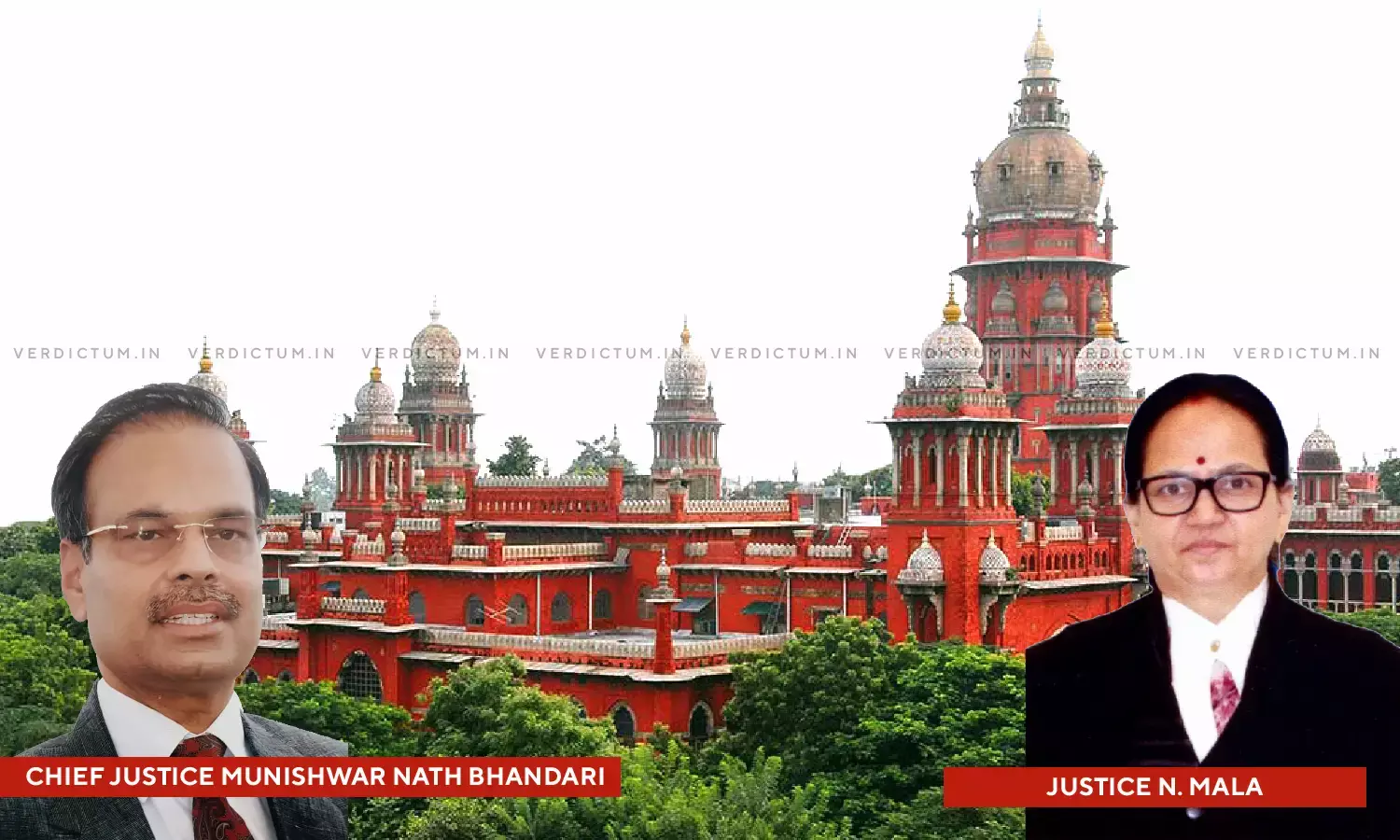Breaking: Madras HC Appoints Committee Headed By Retired SC Judge To Look Into To Appointment Of Archakas In Temples

The Madras High Court today passed an interim order constituting a committee to be headed by a retired Judge of the Supreme Court, Justice Doraiswamy Raju to look into the issue relating to qualification for appointment of Aarchakas in Temples under the state's control.
The Committee has been constituted to identify agamic and non-agamic temples to address the issue of qualification of Archakas to be appointed to those temples.
The Bench of Justice Munishwar Nath Bhandari and Justice N. Mala passed the interim order in a Writ Petition filed by Swami Rambhadracharya along with 8 others challenging the Archaka appointment rules framed by the Tamil Nadu government.
It is stated in the Petition that Swami Rambhadracharya is the Founder and the head of Tulsi Peeth, which is a religious and social service organisation in Chitrakuta and the lifelong chancellor of the Jagadguru Rambhadracharya Handicapped University. He has mastered over 20 languages has written over 80 books and had deposed as an expert witness in the Ayodhya Ramjanmaboomi case.
The other Petitioners are Dr. Bhurelal, Prof. Makkhan Lal, Prof. Vinay Kumar Rao, Prof. Kapil Kumar, Dr. Kushal Kant Mishra, Prof. Sangit Kumar Ragi, Venkataramanan Krishnamurthy and Prof. Vinay Phatak.
The Petitioners have accused the Tamil Nadu Government and its HR&CE Department of an attempt to dilute the provisions of Agama with the view to completely extinguish the Hindu Agamic knowledge systems that have been preserved and nurtured for thousands of years by Sages, Gurus and scholars. They have challenged the Tamil Nadu Hindu Religious Institutions Employees (Conditions of Service) Rules, 2020.
The Petitioners have contended that the Rules are violative of Agamas, Articles 25 and 26 of the Constitution and various judgments of the Supreme Court.
"The Agamic violations in the eligibility criteria of Archagas and dilution of syllabus for Archaga training as recommended in Rule 2020 cut at the roots of temple traditions and will completely extinguish the Agamic knowledge system that has been preserved and nurtured for centuries by the great gurus and venerable scholars of our holy land", the Petition says.
The 2020 Rules only prescribed that the candidate must be able to read and write Tamil and must possess a certificate of in Agama training in training schools run by religious or non-religious institutions.
The Petitioners say that the Supreme Court has ruled that Archakas will have to be from a specific denomination, sect or group in accordance with the directions in the Agamas governing each temple and that the 2020 Rules do not consider this core requirement.
The Petitioners also say that the Justice Maharajan Committee appointed by the Tamil Nadu government reported in 1982 that any rule enabling the appointment of Archakas belonging to any section of Hindus other than the designation specified in the Agamas will be violative of Articles 25 and 26 of the Constitution.
The Petitioners say that there is no rationale for appointing another committee on the issue of appointment of Archakas once Justice Maharajan Committed has already reported on the issue. The government framed the 2020 Rules on the basis of the recommendation of a new High Level Committee formed by the Government.
In a recent Judgment of the same Bench, the Court had held that Archakas can only be appointed by Trustees and in their absence, the authority would be of the 'Fit Person'. "The manner and qualification of Archakas would depend on the nature of the Temples. If it is as per Agamas then eligibility of Archakas would be as given by the Apex Court in the judgment (supra)", the Court had held, referring to the Judgments in Seshammal Vs. State of Tamil Nadu (1972 (2) SCC 11) and Adi Saiva Sivachariyargal Nala Sangam Vs. State of T.N. (2016 (2) SCC 725).
The story will be updated upon receipt of the order.

